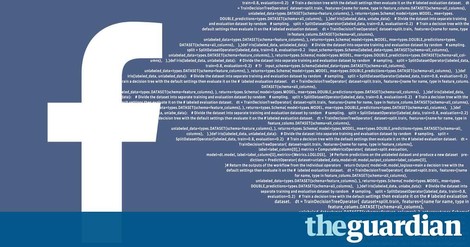Your podcast discovery platform
Curious minds select the most fascinating podcasts from around the world. Discover hand-piqd audio recommendations on your favorite topics.

piqer for: piqd Boom and bust Climate and Environment Global finds Globalization and politics Health and Sanity Technology and society Doing Good Deep Dives
Malia Politzer is the executive editor of piqd.com, and an award-winning long-form journalist based out of Spain. She specializes in reporting on migration, international development, human rights issues and investigative reporting.
Originally from California, she's lived in China, Spain, Mexico and India, and reported from various countries in Africa, Europe and the Middle East. Her primary beats relate to immigration, economics and international development. She has published articles in Huffington Post Highline, The Economist, The Wall Street Journal, Vogue India, Mint, Far Eastern Economic Review, Foreign Policy, Reason Magazine, and the Phoenix New Times. She is also a regular contributor to Devex.
Her Huffington Post Highline series, "The 21st Century Gold Rush" won awards from the National Association of Magazine Editors, Overseas Press Club, and American Society of Newspaper Editors. She's also won multiple awards for feature writing in India and the United States.
Her reporting has been supported by the Pulitzer Center on Crisis Reporting, The Institute For Current World Affairs, and the Global Migration Grant.
Degrees include a BA from Hampshire College and MS from Columbia University Graduate School of Journalism, where was a Stabile Fellow at the Center for Investigative Journalism.
Facebook's Secret War on Free Will
This article is equal parts reportage and a musing of moral philosophy: We know that technology changes the way that humans behave, and that the tech giants -- the Facebooks, Twitters and Googles of the world -- are radically redefining how we interact with one another, both on an individual and social level. The question at the heart of this piece is not whether they are changing human behavior, but how, and at what cost? The algorithm plays a pivotal role in this query: Today, Facebook algorithms -- essentially, the filters that decide what posts viewers will see in their newsfeed -- have to interpret more than 100,000 "signals". Facebook engineers and data scientists then take the role of subtly altering algorithms to change the viewer experience. Journalist Foer writes how,
"With even the gentlest caress of the metaphorical dial, Facebook changes what its users see and read. It can make our friends’ photos more or less ubiquitous; it can punish posts filled with self-congratulatory musings and banish what it deems to be hoaxes; it can promote video rather than text; it can favour articles from the likes of the New York Times or BuzzFeed, if it so desires. Or if we want to be melodramatic about it, we could say Facebook is constantly tinkering with how its users view the world – always tinkering with the quality of news and opinion that it allows to break through the din, adjusting the quality of political and cultural discourse in order to hold the attention of users for a few more beats."
This, of course, has significant implications on the behavior of its users: Already, Facebook has published an article in the scientific magazine, Nature, boasting an increase in voter turnout and blood donations of its users due to subtle algorithm tweaks. However, while increasing voter turnout and blood donation is arguable positive, the capacity for a large corporation to engage in the massive manipulation of billions of users is a pretty frightening prospect.
